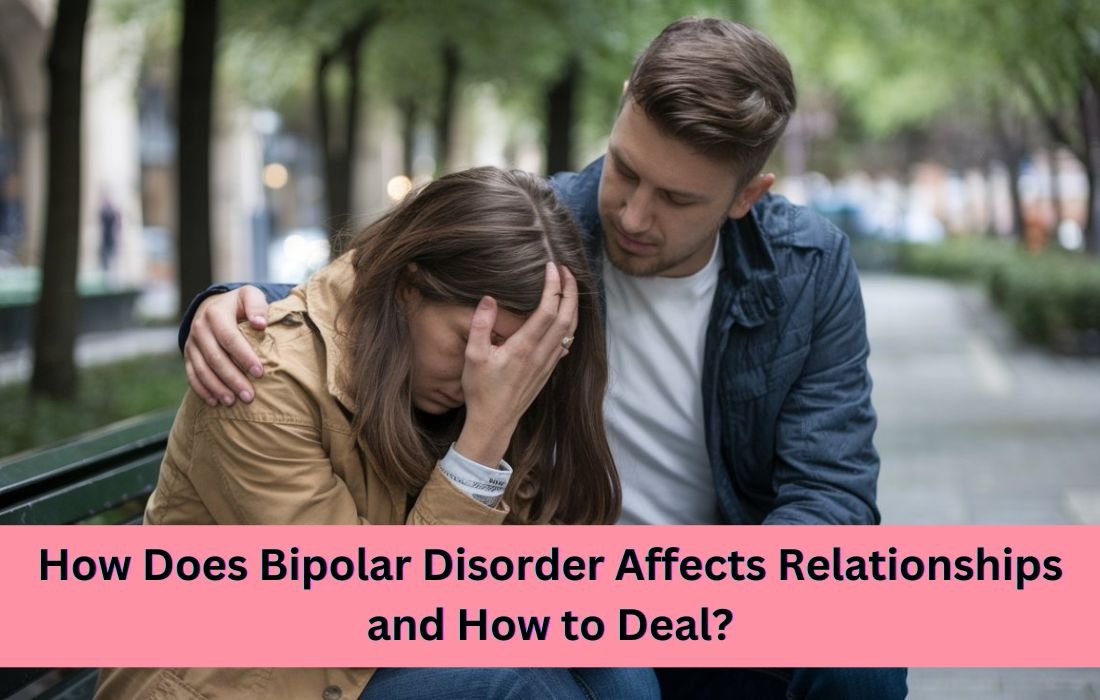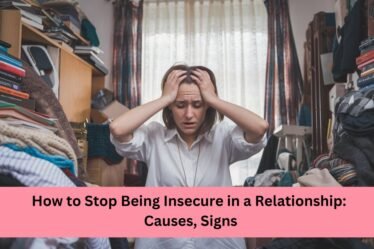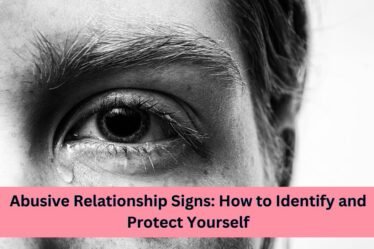
Bipolar disorder can cause a lot of impacts on relationships. The mental illness causes extreme shifts in moods, sometimes extreme depression and high energy.
It can affect both the affected individual and their partner during such phases.
In this article, we will run down the impacts of bipolar disorder on relationships.
We also offer some tips to the couples for dealing with this mental health condition.
What is bipolar disorder?
Bipolar Disorder is a psychiatric illness.
It’s a mental health condition, where patients experience two types of episodes at different times.
One is severe depression, where the person does not want to bathe, get up, or eat. They feel like they have absolutely no energy to do anything.

In this phase, it seems like the person can barely live. They don’t want to eat, get up, or do anything at all.
And then suddenly, within two days, this same person, who couldn’t get out of bed suddenly becomes so energetic. Their sleep disappears. This second phase is called mania.
They want to eat a lot, talk excessively, and keep moving, without wanting to rest.
This illness is related to hormones in the brain. These mood swings can sometimes be triggered by emotional shocks, like the death of a family member or a major loss.
Types of bipolar disorder

1. Bipolar I Disorder
Bipolar I have three symptoms: mania, hypomania, and depression.
However, when diagnosing Bipolar I, we only look at episodes of mania and depression, not hypomania.
Another aspect we look at is the duration. For Bipolar I, the duration of mania symptoms should last at least a week.
Similarly, depression means when non-bipolar individuals experience a high mood.
If an episode lasts for a week, your energy might be high. After a week, when the episode ends, you return to normal, and after that, you can feel very down and depressed.
2. Bipolar II Disorder
In Bipolar II, there are no episodes of mania; you should focus only on hypomania and depression.
Hypomania is a milder form of mania, and it lasts for four days, followed by depression.
In the hypomanic phase, you might have high energy but will eventually transition to a depressive phase.
3. Cyclothymic Disorder (Cyclothymia)
The symptoms are the same as those of hypomania and depression.
However, they persist for a period of two years.
A person cannot remain normal for more than two months, so episodes will start, that leads to either hypomania or depression.
Symptoms of bipolar disorder

1. Increased activity and hyperactivity:
Patients may start engaging in unusual activities or overworking, often late into the night.
These activities may go beyond what they typically do and often include things that previously held little interest to them.
2. Unusual happiness:
A person may appear overly happy or excited, sometimes excessively romantic or expressive, even if there’s no clear reason.
This unusual cheerfulness can stand out as it differs significantly from their usual demeanor.
3.Impulsive behavior:
Actions such as increased social interaction, risky behaviors, or unexpected spending (like buying things impulsively or even keeping items like condoms in places their partner may find them) may indicate a lack of self-control.
4.Sleep changes:
Patients may require less sleep or seem energetic even after little rest.
This hyperactivity may include physical exercises or going on long walks, which might be new behaviors for them.
5. Lack of focus:
People suffering from bipolar disorder have difficulty concentrating. Attention is diffused. It is hard to complete work.
This symptom is usually more evident in the manic phase but can also be present during depressive episodes.
During the manic phase, they are easily distracted due to high energy.
In depressive episodes, they might feel mentally “foggy” and are incapable of focusing on even simple tasks.
6. Suicidal thoughts:
People with bipolar disorder wants to kill themselves. These feelings often come from intense hopelessness.
The person believe things will never get better. They feel trapped in their pain. They think there’s no escape.
Therefore, sometimes they believe their loved ones would be better off without them.
Suicidal thoughts in bipolar disorder are serious and need immediate support.
7. Feeling guilty:
During depressive episodes, people with bipolar disorder struggle with deep feelings of guilt. They replay past events in their minds. This self-blame can create a guilt.
How bipolar disorder affects relationships?

1. Fear of rejection:
People with bipolar often feel emotions very intensely.
When you’re in a mood swing, whether high or low, it’s hard to explain this to someone you love.
You worry: Will they be there for me? Will they leave me? It’s a constant fear.
2. No clear communication:
In manic phases, bipolar people feel overly confident or impulsive. On the other hand, in depressive phases, they shut down and withdraw.
This unpredictability led to misunderstandings in relationship. For the partner, it can be very confusing or even hurtful. when they’re suddenly shut out.
The person with bipolar struggle with expressing what they truly need at the moment.
3. Emotional turmoil:
Bipolar disorder brings periods of extreme highs and lows.
Manic phase of bipolar gives your partner a feel full of energy. They come up with exciting plans and making spontaneous decisions.
Later on, your partner feels exhausting, especially when those plans get fail.
While depressive phases are another extreme, where your partner lose interest in even simple activities. They spend a lot of time alone.
The partner feels isolated and worries that they’ve done something wrong. This behavior adds strain to the relationship.
4. Trust issues:
Trust can become a major challenge when bipolar disorder is involved.
Sometimes, your partner promises certain things during a manic phase. Later on, they struggle to follow through during a depressive phase.
This inconsistency leaves their partner feeling disappointed and creates trust issues.
5. Avoids intimacy:
The highs and lows of bipolar disorder can also impact physical intimacy.
During depressive phases, due to lack of energy your partner stays away from you.
On the other hand, during manic phases, their sex drive increases.
In such cases, in the relationship, finding a balance that respects each person’s comfort level is important.
How to deal with bipolar disorder in relationships?
Having a relationship with bipolar disorder partner is bit challenging.
But no worries, here are some ways to deal bipolar disorder in relationships.

1. Educate yourself:
The first step in the process of handling bipolar disorder within a relationship is getting a proper understanding of exactly what it is.
Specifically, it is a mental condition that causes extreme mood changes. It includes mania and depression.
Take a few hours to educate yourself through books, online resources, or meet a doctor. That way, you would be able to support your partner.
2. Clear communication:
Any relationship needs open communication, and managing bipolar disease is no different.
You must be able to keep open communication with your partner on your needs, feelings, and issues. This fosters trust.
In addition, do your best to plan for regular time to catch up with each other. Moreover, talk openly with your partner about any changes in your mood.
3. Take a proper treatment:
Continuous treatment in bipolar disorder should include drugs, therapy, as well as lifestyle adjustments. Support your partner in following treatment plan.
Help them when problems came such as side effects or other issues.
4. Take care of your mental health:
Be there for your partner but taking care of yourself is just as important. It is very difficult to be with someone who has bipolar disease.
So, make sure that you take care of your health first. Do the things that you like. For example, self-care.
Take help from friends or family and also consider going for therapy.
You and your partner gain when you care for your own mental health as that keeps you strong, patient, and composed.
You don’t have to bear all the loads or tension by yourself.
5. Seek couple therapy:
Both spouses find couples therapy to be very helpful in managing the effects of bipolar disorder on their relationship.
A therapist guides improvement in communication, boundaries, and also how to handle mood swings. You can find new ways to help each other in therapy.
Always work as a team.
6. Accept your partner:
Acceptance is an important factor in any relationship.
When you love a person for who they are, good and bad, they will know they are appreciated and loved.
This doesn’t mean you ignore the bad things your partner does; this only means you tolerate the negative things they do.
You know your companion has bipolar disorder, so be patient during their worst moments. Enjoy a loving, healthy relationship by focusing on your partner’s positive attributes.
7. Identify triggers and manage it:
The secret to handling bipolar disorder in a relationship is figuring out what’s causing mood swings.
Identify with your partner what sets off manic or depressed periods, such as sleep deprivation, financial strain, or routine disruptions.
Together you can devise strategies for dealing with triggers once they have been identified.
For instance, if stress is a trigger, you can talk about how to reduce it. You can learn relaxation techniques.
As a result, both partners feel more in control and ultimately the relationship is less affected by mood swings.
Frequently Asked Questions
1. Can bipolar people have healthy relationships?
Yes, it is absolutely possible for patients who have bipolar disorder to have healthy relationships.
Proper understanding, clear communication, proper treatment, and support lead to the possibility of forming a strong relationship.
2. Is dating someone with bipolar difficult?
It is hard to date someone with bipolar disease because of extreme mood swings, including manic and depressed episodes.
However, if the couples are empathetic and honest with each other, they will be able to overcome such obstacles.
3. Why bipolar relationship fails?
Bipolar relationships fail due to factors like fear of rejection, trust issues, lack of communication, emotional turmoil, and difficulties managing mood swings.
These challenges can strain the relationship if left unaddressed.
Without the necessary support, education, and treatment, maintaining stability and understanding within the relationship may be difficult.
4. How do bipolar people act in relationships?
Bipolar people appear energetic and impulsive during manic phases. And during depressive episodes, they possess very little energy to accomplish much of anything.
“Was this helpful”? Share with your friends!”



